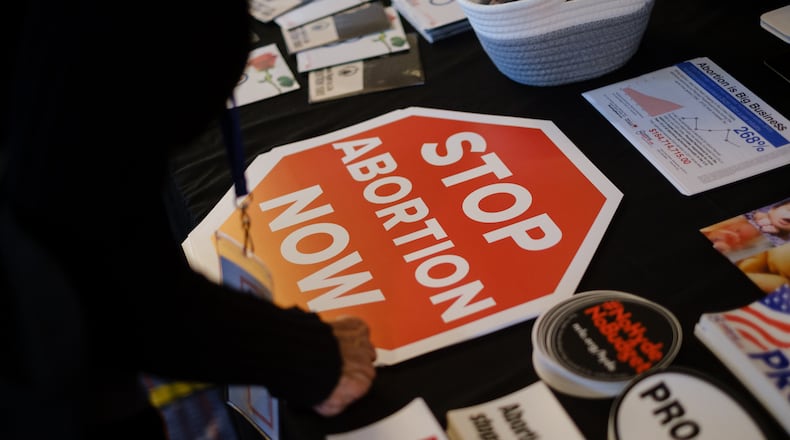A federal appeals court ruling allowed Georgia’s restrictive abortion law to take effect nearly a month after the U.S. Supreme Court overturned Roe v. Wade, which had guaranteed a constitutional right to the procedure for nearly 50 years.
Georgia’s 2019 law had been blocked while it made its way through the legal process. Soon, most abortions after about six weeks of pregnancy will no longer be allowed in Georgia.
What does that mean for people who become pregnant but do not want to give birth?
When is abortion legal?
The 2019 law, which took effect Wednesday, bans abortion in most cases once a doctor can detect fetal cardiac activity, typically about six weeks into a pregnancy — or four weeks from conception — and before many women know they are pregnant. Obstetricians track pregnancy based on the last menstrual period, which is typically two weeks before conception.
Georgia’s previous restrictions
Before Wednesday’s ruling, Georgia allowed abortions up to 22 weeks into a pregnancy — or about 20 weeks from conception. Abortions later than that still were allowed if a doctor determined the mother’s life was in danger, her physical health was severely compromised or if the fetus would not survive.
Exceptions
Georgia’s new law allows women to get abortions after the detection of fetal cardiac activity and up until 22 weeks of pregnancy in cases of rape or incest. Victims would have to have reported the incident of rape or incest to the police to qualify for a later abortion.
Abortions past 22 weeks could also be performed if the fetus has congenital or chromosomal defects and would not survive.
Personhood?
Georgia’s law was different from other states’ “heartbeat” statutes because it included so-called personhood provisions, extending rights to an embryo once fetal cardiac activity can be detected.
Parents will be able to claim a fetus, once cardiac activity is detected, on their state income taxes as a dependent, and the measure will also require state officials to count an unborn child toward Georgia’s population. Mothers can also file for child support once cardiac activity is detected.
State agencies — such as the Department of Revenue, the Division of Child Support Services and the Georgia State Patrol — now have to figure out how to uphold and enforce those personhood provisions.
Who gets abortions in Georgia?
Department of Public Health records show 34,988 abortions were performed in 2021, a rate of 10.3 abortions per 1,000 females between the ages of 10 and 55. That number has crept up each of the past four years after steadily declining since 1994 — as far back as state records go.
Nearly two-thirds of the state’s reported abortions occur in metro Atlanta, where most of the state’s abortion clinics are located, with Fulton County reporting 6,808 abortions in 2021. Metro Atlanta makes up roughly half of Georgia’s 10.7 million residents.
Georgia’s 41 nonrural counties, defined as those with 50,000 residents or more, accounted for almost 91% of abortions. The remaining 118 counties accounted for about 9% of abortions performed.
Women between the ages of 25 and 29 received the most reported abortions — about 28%. Girls and young women, between ages 10 and 19, received about 7% of abortions in 2021.
More than two-thirds of abortions were performed on Black women. Nearly 19% of abortions were performed on white women.
What’s next?
Anti-abortion activists say without Roe v. Wade as a legal guide, they plan to try to restrict access to abortion further.
Efforts to clamp down on federal regulations that allow women to be seen virtually and then prescribed the abortion pill, which can then be sent through the mail, are expected to return to the General Assembly next year. A bill that would have required women to go for an in-person visit and pick up the medicine failed to receive a final vote during the 2022 session.
Other activists say they want to fix what they call “loopholes” in Georgia’s 2019 law — getting rid of the exceptions for rape and incest. And, in an election year, many statewide Republican candidates have said they support a total ban on abortion, with no exceptions.
About the Author
Keep Reading
The Latest
Featured




